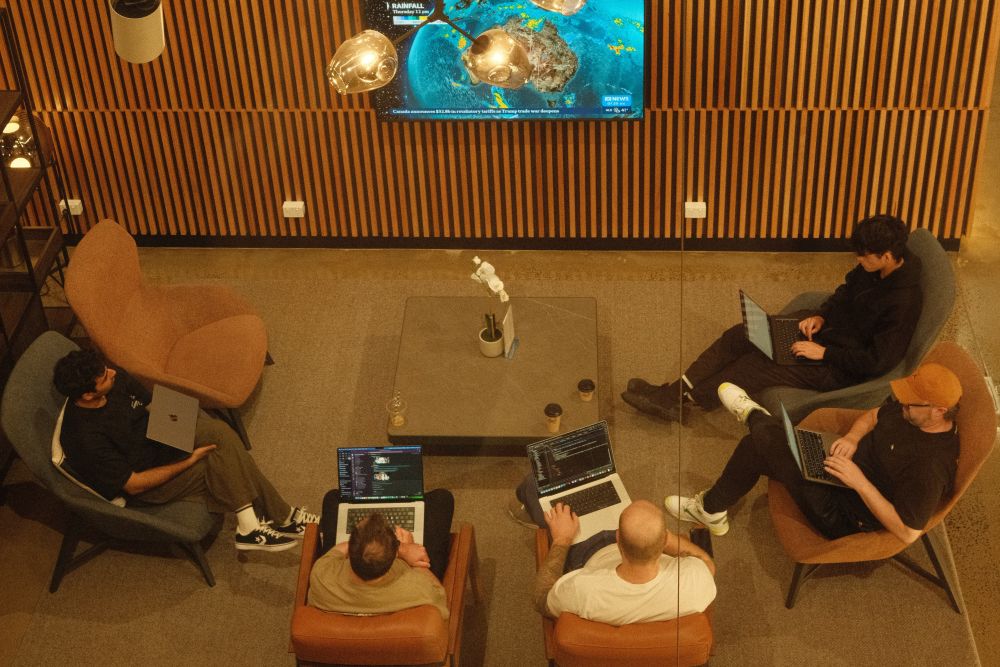
In a world where change is constant and disruption is inevitable, resilience in business has become more than just a buzzword—it’s a core capability. From supply chain challenges to digital transformations and global crises, businesses are expected to adapt, respond quickly, and still serve their customers and communities with confidence. But what does resilience in business mean, and how can leaders build it into the fabric of their organisations?
At United Co., we’ve seen firsthand how adaptability and forward-thinking leadership can help businesses not just survive, but thrive in uncertain times. In this article, we explore what it takes to develop a resilient organisation, starting with leadership and extending through culture and operational continuity.
Resilience as a Strategic Advantage
Let’s start by defining resilience in business. At its core, it refers to an organisation’s ability to absorb shocks, respond quickly to change, and continue operating with minimal disruption. But beyond surviving disruptions, resilient businesses evolve. They seize change as an opportunity to grow, innovate, and connect more deeply with their customers and stakeholders.
Why is resilience now a strategic advantage? Because disruption isn’t an occasional event, it’s a regular feature of modern business. Consider recent years: a global pandemic, inflationary pressures, labour shortages, supply chain disruptions, and the accelerating pace of digital transformation. These events have tested every aspect of business operations.
Resilient companies are:
- More agile in reallocating resources and reprioritising goals.
- Better at maintaining customer trust during uncertain times.
- Stronger at retaining top talent by providing clarity and purpose.
- More likely to innovate under pressure.
When resilience is built into your business model, your organisation becomes capable of responding to the unknown with confidence, not fear.
Developing a Resilient Leadership Mindset
The foundation of resilience in business begins with leadership. In volatile environments, people look to leaders for direction, reassurance, and inspiration. Leaders who possess resilience themselves, who remain composed under pressure, think strategically in crisis, and engage with empathy, are the ones who guide their teams through disruption successfully.
A resilient mindset among leadership involves:
- Clarity amid complexity: being able to filter noise and focus on what matters most.
- Adaptability: letting go of outdated plans and rethinking strategies as conditions evolve.
- Empathy and emotional intelligence: supporting team wellbeing and fostering connection in tough times.
- Decisiveness: making timely decisions, even with incomplete information.
Leaders can build this mindset through intentional actions such as:
- Scenario planning and “pre-mortems” that prepare teams for potential challenges.
- Executive coaching or resilience training focused on stress management and communication.
- Peer networks or cross-sector learning opportunities that broaden perspectives.
Remember, resilient leaders inspire resilient teams. When leadership models calm, purpose-driven behaviour during uncertainty, it sets the tone for how the entire organisation responds.
Read More About Understanding What Agile Methods Are in Project Management
Creating a Culture of Adaptability
While leadership is critical, resilience in business must also be deeply embedded in organisational culture. A culture of adaptability ensures that resilience is not just a top-down directive; it becomes a shared value across teams and departments.
Building such a culture requires shifting from control to empowerment. Employees need to feel confident experimenting with new ideas, offering feedback, and taking initiative without fear of failure. That sense of psychological safety, where people can speak up, share concerns, and try new approaches, is key to unlocking adaptive behaviour.
Here are ways to foster an adaptable and resilient culture:
- Encourage curiosity and learning: Celebrate efforts to test new ideas, even if they don’t succeed immediately. Learning organisations bounce back faster.
- Recognise resilience in action: Acknowledge employees or teams who’ve adapted well to changes, whether that’s launching a new service quickly or solving unexpected problems creatively.
- Promote open, transparent communication: Employees need access to accurate information in real time. A well-informed workforce is more confident in uncertain situations.
- Design for agility: Implement cross-functional teams and agile workflows that allow for faster decision-making and collaboration.
Workspaces also play a role. At United Co., we’ve designed our spaces to support collaboration, movement, and focus—all of which help teams remain flexible and engaged, even as their needs change.
Read More About The Key Benefits of Gamification for Training in the Workplace
The Power of Business Continuity Planning
Another core component of resilience in business is operational preparedness. Business continuity planning is more than just a checklist—it’s a strategic tool that ensures the organisation can function smoothly during and after a disruption.
Strong continuity plans enable businesses to:
- Minimise downtime and revenue loss.
- Protect customer and employee data.
- Communicate clearly with stakeholders in moments of crisis.
- Avoid chaos by following pre-agreed protocols.
An effective business continuity plan should include:
- Risk assessments: What are the biggest threats to your operations (e.g., cyberattacks, power outages, staff shortages)?
- Technology and data protection: Ensure systems have backup protocols and that teams can work remotely when needed.
- Workforce flexibility: Create policies that allow for remote or hybrid operations without compromising productivity or connection.
- Supply chain mapping: Identify alternative suppliers and logistics partners to reduce over-reliance on any single point of failure.
Continuity planning also requires regular testing. Holding drills, updating contact lists, and reviewing recovery times help maintain readiness over time. Businesses that invest in continuity don’t just recover faster, they protect their brand, their people, and their long-term value.
How to Strengthen Your Resilience
Building resilience in business is a long-term journey, but it can begin with small, strategic steps. Whether you’re a business owner, team leader, or entrepreneur, here’s how you can begin embedding resilience into your operations:
1. Conduct a resilience audit
Review your leadership approach, team structures, communication systems, and technology tools. Then form a cross-functional response team. These teams can quickly respond to changing conditions, enabling faster decision-making and better coordination in times of need.
2. Invest in digital readiness
Equip your teams with the right tools and training to work flexibly. A digital-first mindset supports agility and scalability. Prioritise internal communication and et up systems that ensure messages are shared quickly, clearly, and consistently, especially during fast-changing scenarios.
3. Create post-disruption reviews
After a challenge is navigated, take time to reflect on what worked and what didn’t. Use those insights to refine future responses. These actions not only prepare your business for adversity, they create a foundation of confidence and clarity that fuels long-term performance.
Read More About Member Spotlight: Goethe-Institut on Culture, Connection & Community
Resilience in business isn’t just about bouncing back, it’s about bouncing forward. It’s about building the muscle memory, systems, and mindset to turn disruption into opportunity, uncertainty into innovation, and change into progress.
At United Co., we’re committed to supporting organisations that want to lead with purpose and strength. From our flexible workspaces to our thriving community of like-minded professionals, everything we do is designed to help businesses build the confidence to adapt and grow, no matter what the future holds.
If you’re looking to strengthen your business’s resilience and future-proof your operations, we invite you to explore what United Co. has to offer. Because the most resilient businesses aren’t just prepared for change, they’re built for it.






